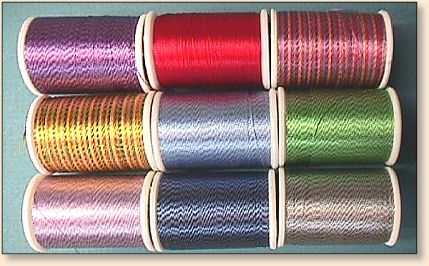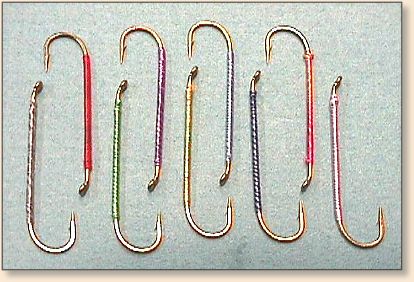Fly Tier's are very familiar with the tying
material rayon; it's used in most floss they
use. You may choose to use traditional silk
floss for Salmon Flies, but for most other
patterns calling for floss, rayon is the floss
of choice. But there is another rayon tying
material that is never mentioned, is very durable
and inexpensive, Rayon Thread.

Coat & Clark is a very familiar product line to
those in the clothing manufacturing market.
Coat & Clark has an extensive line of not only
rayon thread, they also have pattern rayon thread
(twisted rayon) that is two different colors, or
two different shades of rayon thread twisted together.
Rayon thread has the same sheen that rayon floss
is admired for. The colors are just as bright
and vibrant as the rayon floss. The rayon thread
is very durable and has enough strength to tie with.
I really prefer the rayon thread over the rayon floss;
there no fraying with the thread, unlike what can happen
with the floss. The thread (35 weight) is similar in size
to 6/0 thread that we are familiar with. Used like floss
on the fly, but you can start the fly pattern with the
rayon thread unlike the floss. You can dress the fly
hook with rayon thread, tie in the tail and ribbing,
and then lay the second layer of thread wrap as you
wind forward.

Before attaching the wing and collar, just tie off the
rayon thread, and lock wrap the polyester or nylon
thread you would normally be using for the fly's total
construction. The results will not be anything less
then with the rayon floss, and most likely be better
with more options on colors and effects of the twisted
rayon thread patterns.
All in all, rayon thread is just another tool to put
in the fly tiers bag of tricks, bring something new
into the creations that come from our tying benches.
~ Parnelli
Please check out the Fly Tying Section, on the Bulletin Board, here at FAOL too.
If you have any questions, tips, or techniques; send them to
publisher@flyanglersonline.com
|





